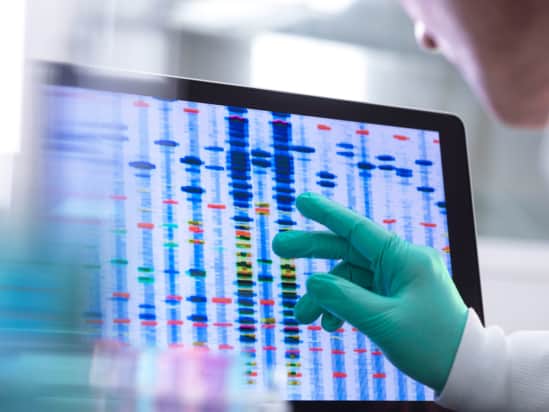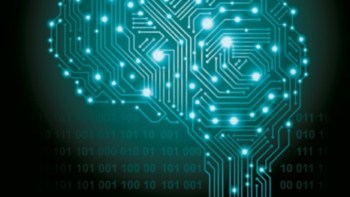

AI has long been a popular mainstay of science fiction, but now, for better or worse, it is increasingly shaping the real world. From medicine to advertising, this collection explores how this rapidly developing technology is already being used in society, and ponders the ethical questions around how it should be used in the future.

Leonard Wossnig of quantum drug-discovery firm Rahko describes the powerful capabilities of AI and quantum computing when combined
A short story by Kevlin Henney explores AI and the Turing Test

Margaret Harris reviews You Look Like a Thing and I Love You by Janelle Shane
An artificial-intelligence blogger and a nanotech entrepreneur are our guests this week

A multidisciplinary open-access journal that bridges the application of machine learning across the sciences with advances in machine learning methods and theory as motivated by physical insights.
 Read article: Medical marvels: how AI is boosting healthcare
Read article: Medical marvels: how AI is boosting healthcare
Irina Grigorescu, a medical physicist at King’s College London, explains how artificial intelligence can transform medical physics
 Read article: AI and particle physics: a powerful partnership
Read article: AI and particle physics: a powerful partnership
Jessica Esquivel explores the beneficial collaboration between artificial intelligence and particle physics that is advancing both fields
 Read article: Neural networks extract information from sparse datasets
Read article: Neural networks extract information from sparse datasets
An algorithm developed by Cambridge physicist Gareth Conduit and inspired by many-body quantum mechanics is the driving force behind a novel materials-science spin-out
 Read article: Machine learning collaborations accelerate materials discovery
Read article: Machine learning collaborations accelerate materials discovery
Combining forces with other numerical approaches, as well as collaborating with other research groups across the world, adds strength to data-driven techniques for materials science
 Read article: Ask me anything: Jony Hudson – ‘I love the incredibly fast pace of progress in machine learning’
Read article: Ask me anything: Jony Hudson – ‘I love the incredibly fast pace of progress in machine learning’
Jony Hudson is a research engineer working on the development of artificial intelligence at DeepMind
 Read article: Emmanuel Sabonnadière describes technology trends within optoelectronics
Read article: Emmanuel Sabonnadière describes technology trends within optoelectronics
The CEO of CEA-Leti speaks with Physics World at Photonics West 2020

Featuring world-leading journals, news and books, dedicated to supporting and improving research across the field, from fundamental science through to novel applications and facilities.
 Read article: Artificial intelligence reveals how light flows around nanoparticles
Read article: Artificial intelligence reveals how light flows around nanoparticles
New technique could be used to design a wide range of optical devices
 Read article: Artificial intelligence spots unusual feature at Earth’s core-mantle boundary
Read article: Artificial intelligence spots unusual feature at Earth’s core-mantle boundary
Astrophysics algorithm is applied to seismic waves
 Read article: Machine learning spots topological phase transitions in experimental data
Read article: Machine learning spots topological phase transitions in experimental data
Diffusion-maps method needs no prior knowledge about a physical system
 Read article: Opening the AI box: can deep learning predict cancer recurrence?
Read article: Opening the AI box: can deep learning predict cancer recurrence?
Artificial intelligence-derived image features predict prostate cancer recurrence with high accuracy
 Read article: Machine learning teases out differences in high-pressure ice phases
Read article: Machine learning teases out differences in high-pressure ice phases
Findings will be important for planetary science as well as condensed-matter physics
 Read article: Artificial intelligence versus 101 radiologists
Read article: Artificial intelligence versus 101 radiologists
An AI system used to detect breast cancer in mammograms achieved a comparable performance to 101 radiologists